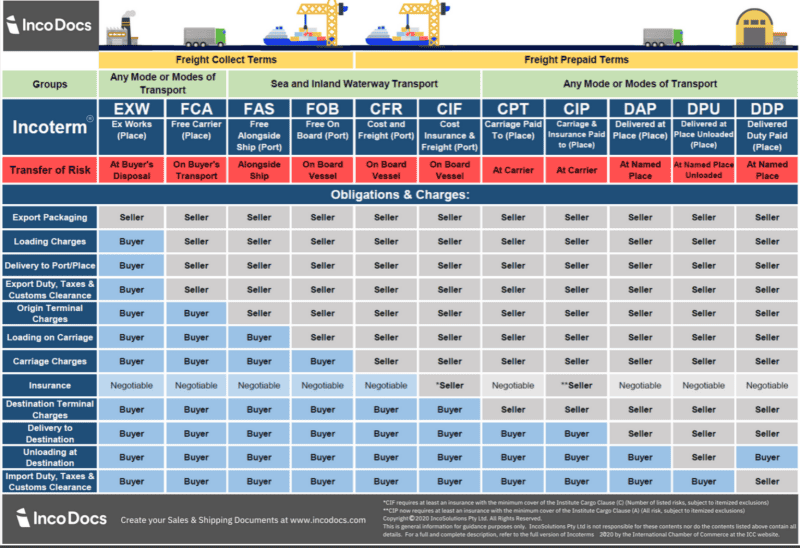New to freight
New to Exporting and Importing? where to start?
Incoterms, short for International Commercial Terms, are a set of standardized rules used in international trade to clearly define the responsibilities of buyers and sellers regarding the delivery of goods.
They help avoid confusion and disputes by specifying who is responsible for costs, risks, and logistics at various stages of the shipping process.

Here’s a simple breakdown:
Roles: Incoterms clarify who is responsible for what—like shipping, insurance, and customs duties. For example, if a seller is responsible for delivering goods to a specific location, they will handle shipping and logistics up to that point.
Cost Responsibilities: They outline who pays for shipping, insurance, and other expenses. This helps both parties understand their financial obligations.
Risk Transfer: Incoterms specify when the risk of loss or damage transfers from the seller to the buyer. This is crucial for understanding when the buyer becomes responsible for the goods.
Common Terms:
EXW (Ex Works): The seller makes the goods available at their location, and the buyer takes on all responsibility from there.
FOB (Free On Board): The seller is responsible for getting the goods to a port and loading them onto the ship. The buyer takes on risk once the goods are on board.
CIF (Cost, Insurance, and Freight): The seller covers the cost of shipping and insurance to the destination port. The buyer assumes risk once the goods are loaded onto the ship.
Global Standards: Incoterms are recognized worldwide, making international trade smoother and helping both parties avoid misunderstandings.
By understanding Incoterms, businesses can negotiate contracts more effectively and minimize risks when trading internationally.
Exporting: What we require
When exporting out of the country we require the following documentation:
SLI (Shipper’s Letter of instruction – Download Below)
Airfreight SLI – PDF Version Airfreight SLI – EXCEL Version
Seafreight SLI – PDF Version Seafreight SLI – EXCEL Version
Identification (Passport/Driver’s License/Government ID Card) – Will be stored on file
Commercial Invoice
Packing List (Personal Effects)

